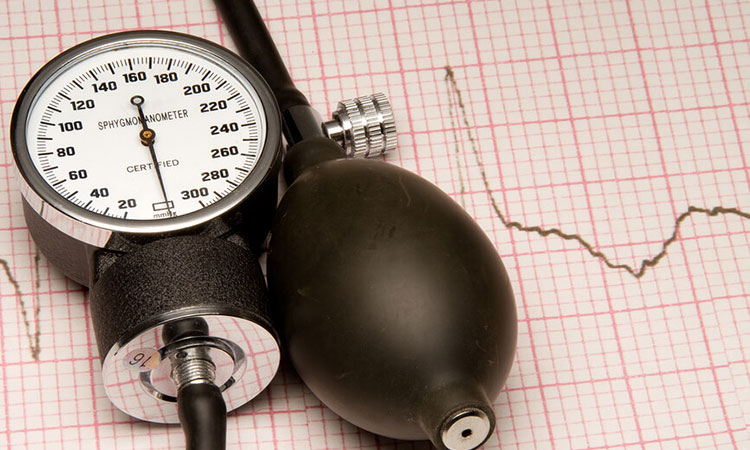
Alcohol and High Blood Pressure – Although alcohol use is enjoyable for many people, even moderate use can increase certain health risks. Consuming more than three drinks in a single episode will temporarily cause your blood pressure to rise, but prolonged binge drinking or routine alcohol use can cause a persistent increase in blood pressure.
What Is High Blood Pressure (Hypertension)?
The heart pumps blood throughout the body whenever it beats. For the blood to adequately circulate, a certain amount of pressure is required. A healthy heart that is functioning normally will pump blood throughout the body at relatively low pressure.
High blood pressure is a condition in which the heart must pump harder in order to circulate the blood throughout the body. This strains the arteries, as they have to work harder to carry the blood that’s now flowing through the body at a higher pressure.
Having high blood pressure, however, is often asymptomatic for many people for quite some time. One of the most hazardous aspects of this disease is that those who have it may not know it. In fact, about one-third of people who have high blood pressure are unaware of it, meaning that it can remain undiagnosed until a major health complication occurs.
Still, according to WebMD, some signs and symptoms of extremely high blood pressure may include the following:
- Severe headache
- Fatigue or confusion
- Vision problems
- Chest pain
- Difficulty breathing
- Irregular heartbeat
- Blood in the urine
- Pounding in the chest, neck, or ears
How Alcohol Affects Blood Pressure
Drinking excessive amounts of alcohol over time can cause an increase in blood pressure. When a person consumes alcohol above a level the body can efficiently process (including during binge drinking), this causes your blood pressure to increase. For the duration of an episode of drinking, and for some time thereafter, blood pressure will remain elevated.
Although persistent, excessive drinking is perhaps most commonly associated with liver disease, it can indeed adversely affect blood pressure. Over time these effects will only compound, and dangerously high blood pressure can develop.

The Dangerous Consequences of High Blood Pressure
High blood pressure can produce a myriad of health issues, such as damage to the kidneys and even retinal disease. High blood pressure can also result in potentially life-threatening consequences such as the following:
Stroke
High blood pressure puts a strain on the arteries and blood vessels throughout the entire body, including those in the brain. Continued stress will cause the vessels to clog or weaken. When this happens, there is a blockage of blood or bleeding in the brain – a stroke.
How a stroke impacts a person depends on where the stroke occurs and how much the brain is damaged. Someone who had a relatively minor stroke may only have largely inconsequential problems such as temporary weakness in an arm or leg. People who have larger strokes, on the other hand, may become irreversibly paralyzed on one side of the body or lose the ability to speak entirely. Some people completely recover from strokes, but more than 2/3 of those who survive will sustain some type of disability.
Heart Attack
Having high blood pressure significantly increases the risk of heart attack. Because high blood pressure makes the heart work harder and increases the overall strain, there will be an increased risk of chest pains, breathlessness, and heart attack.
A heart attack occurs when the network of coronary arteries that surround the heart muscle and supply it with oxygen and nutrient-rich blood is suddenly blocked, preventing blood flow to the heart muscle and damaging it.
Aneurysm
Increased blood pressure can cause blood vessels to weaken and bulge, forming an aneurysm. If an aneurysm ruptures, it can be lethal.
Other Factors
There are many other factors besides alcohol consumption that can contribute to the development of hypertension. These include hereditary factors, being over age 65, the use of tobacco, being overweight, not getting enough physical activity, and eating a diet high in salt or low in potassium.
Seeking Treatment for Alcoholism
To lower blood pressure to a healthy range, it’s vital to decrease the amount and frequency at which alcohol is consumed. Some heavy drinkers can find ways to cut back to moderate levels of drinking over a sustained amount of time, but for many, reducing alcohol intake to normal levels is extremely difficult and medical intervention is necessary.
If you or a loved one wish to recover from alcoholism, we urged you to seek the support of an addiction treatment center, such as Recovery By The Sea, who employs experienced addiction specialists. Programs that include behavioral therapies and medication-assisted therapy can help ease the transition to sobriety, prevent relapse, make the recovery process more comfortable.
Recovery By The Sea uses a comprehensive, evidence-based approach to addiction treatment. Our highly-skilled staff are dedicated to providing each client with the tools and support he or she needs to achieve abstinence and sustain long-term sobriety and wellness. Contact us today and discover how we can help you begin your journey to recovery!